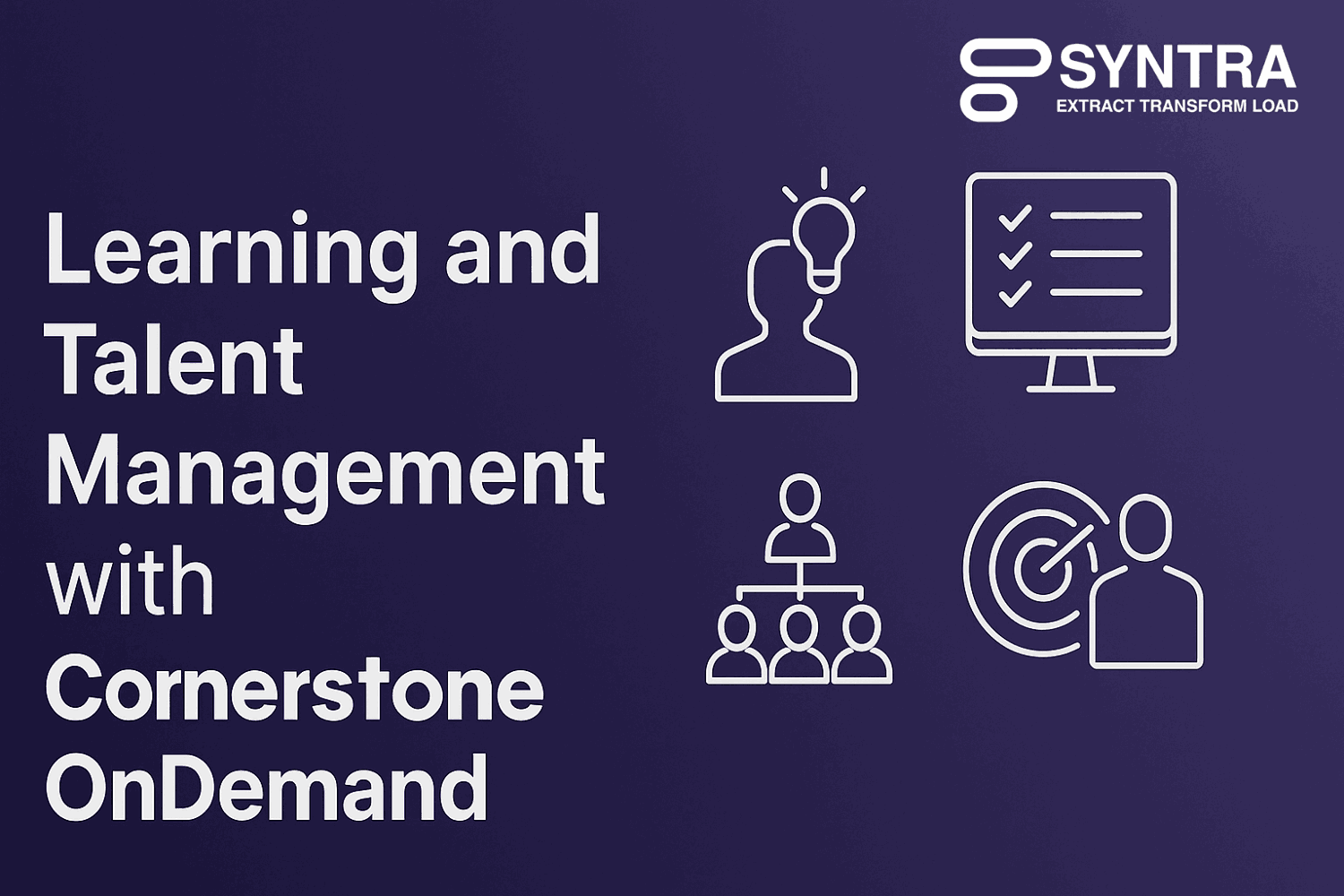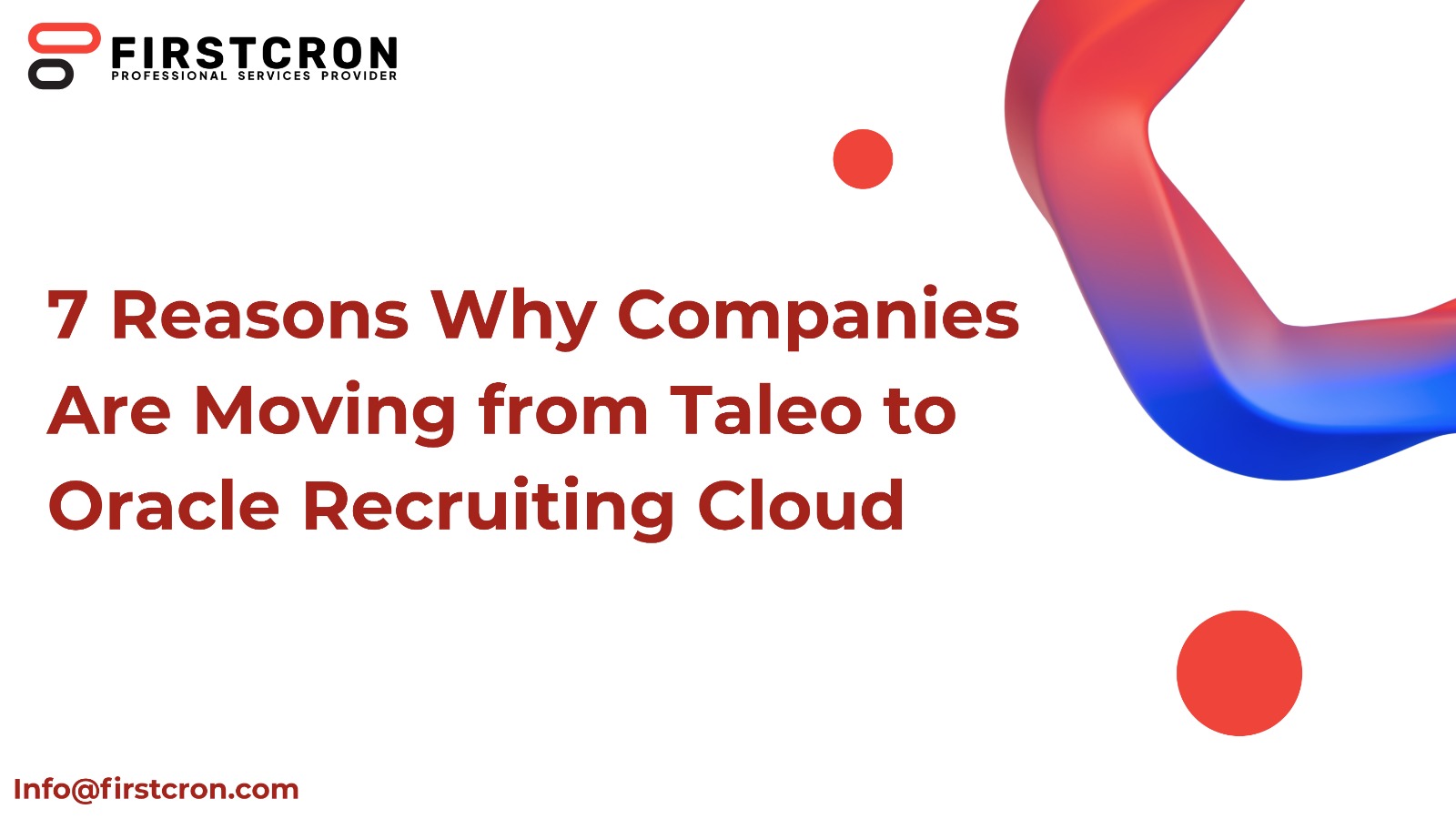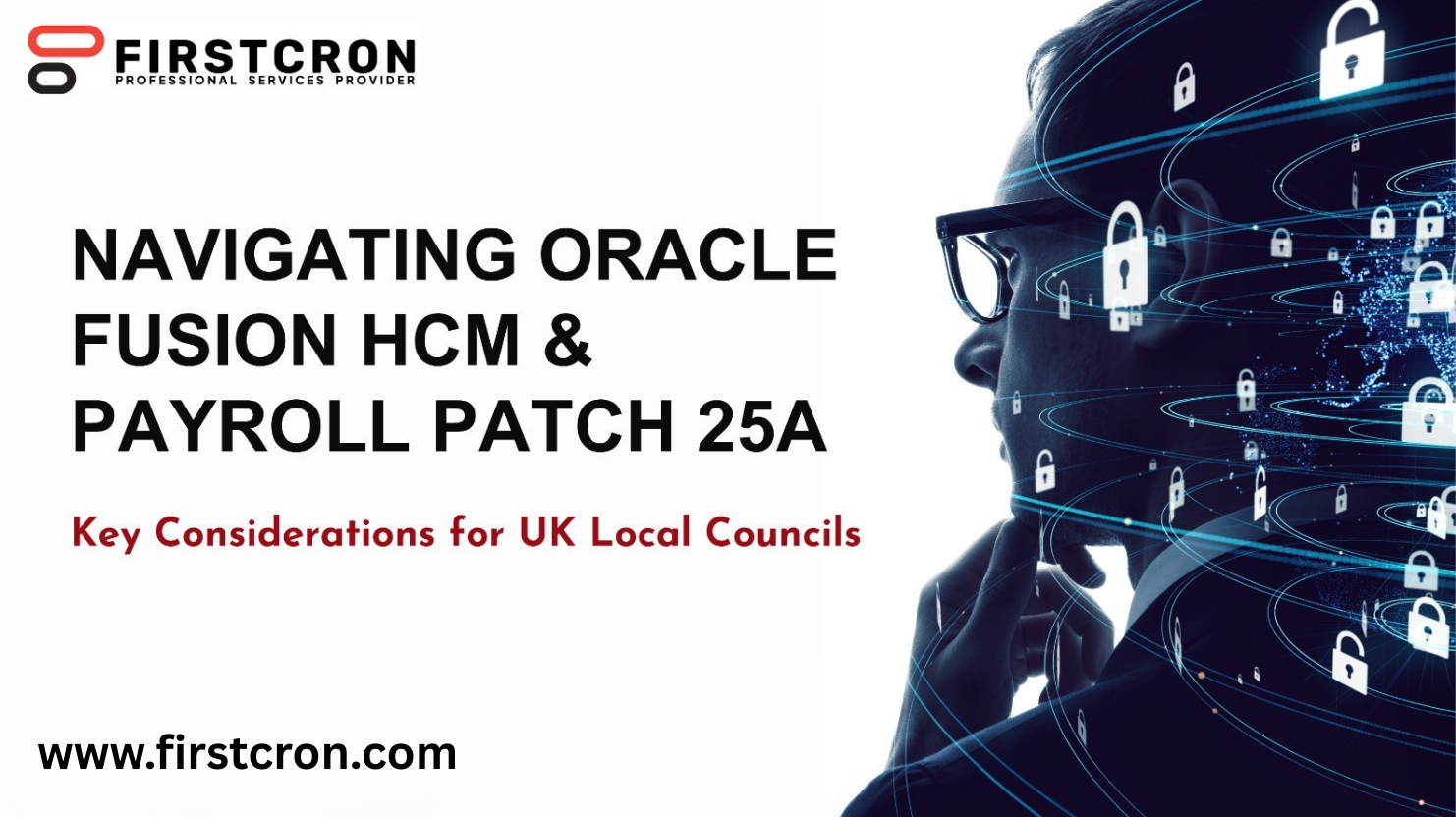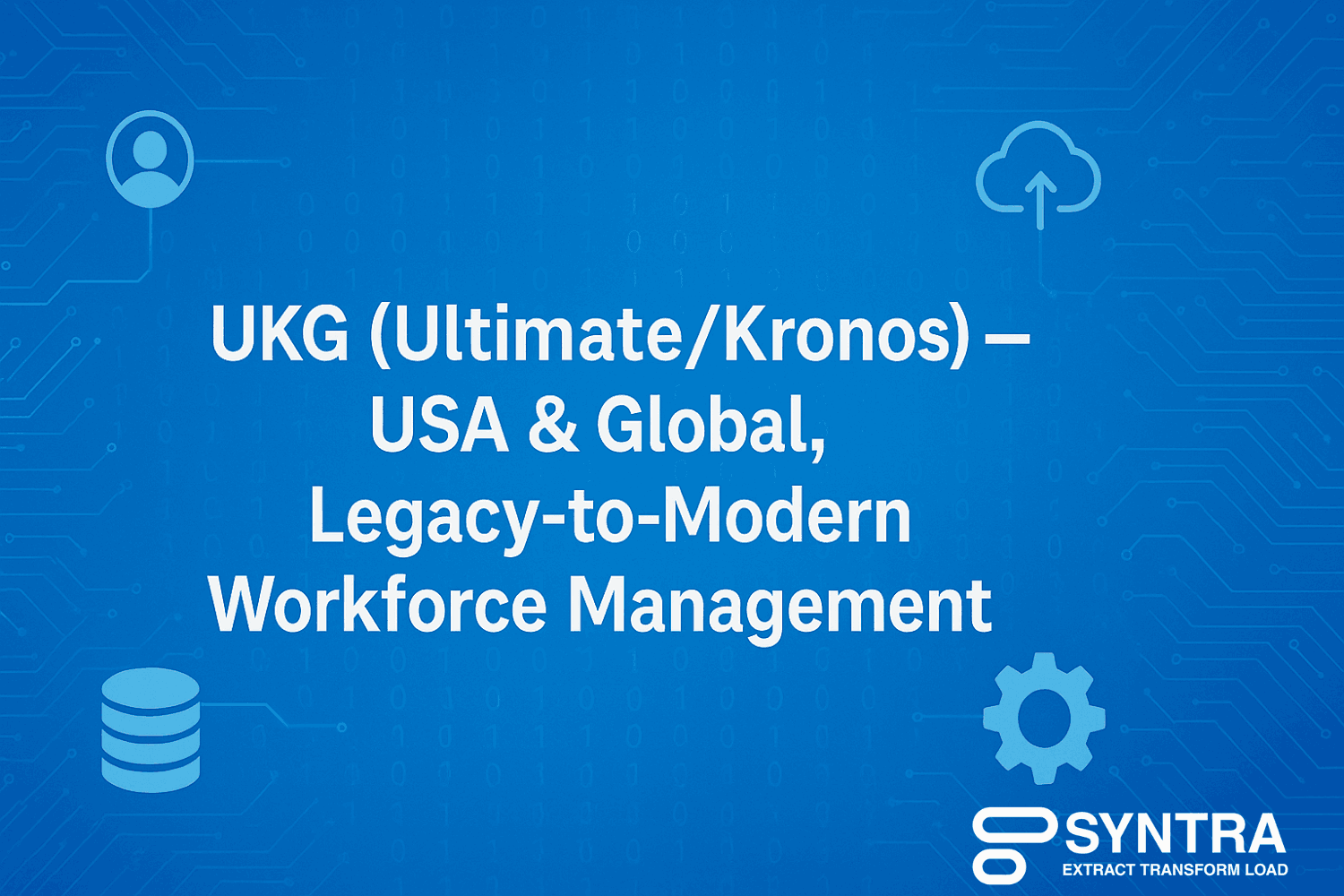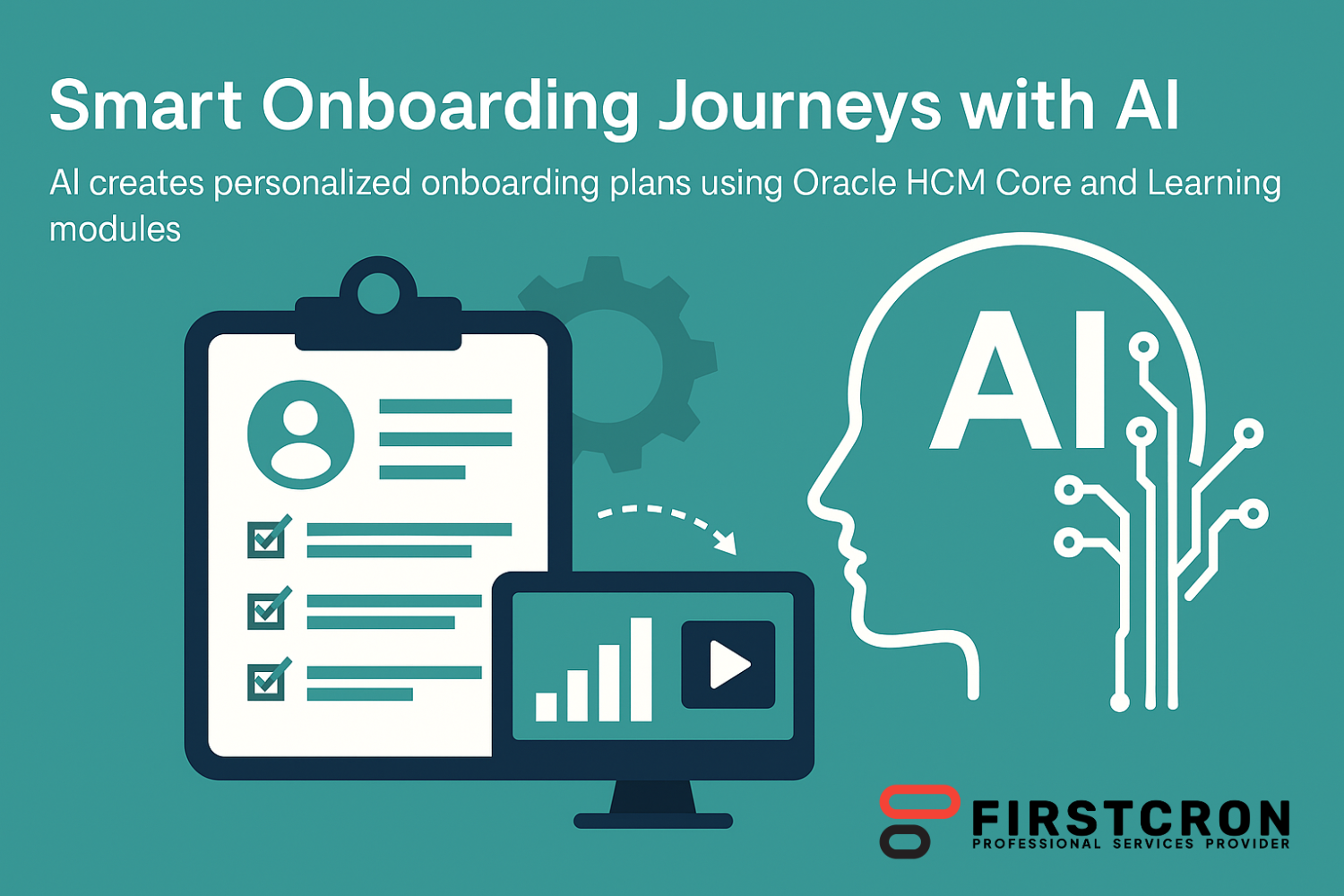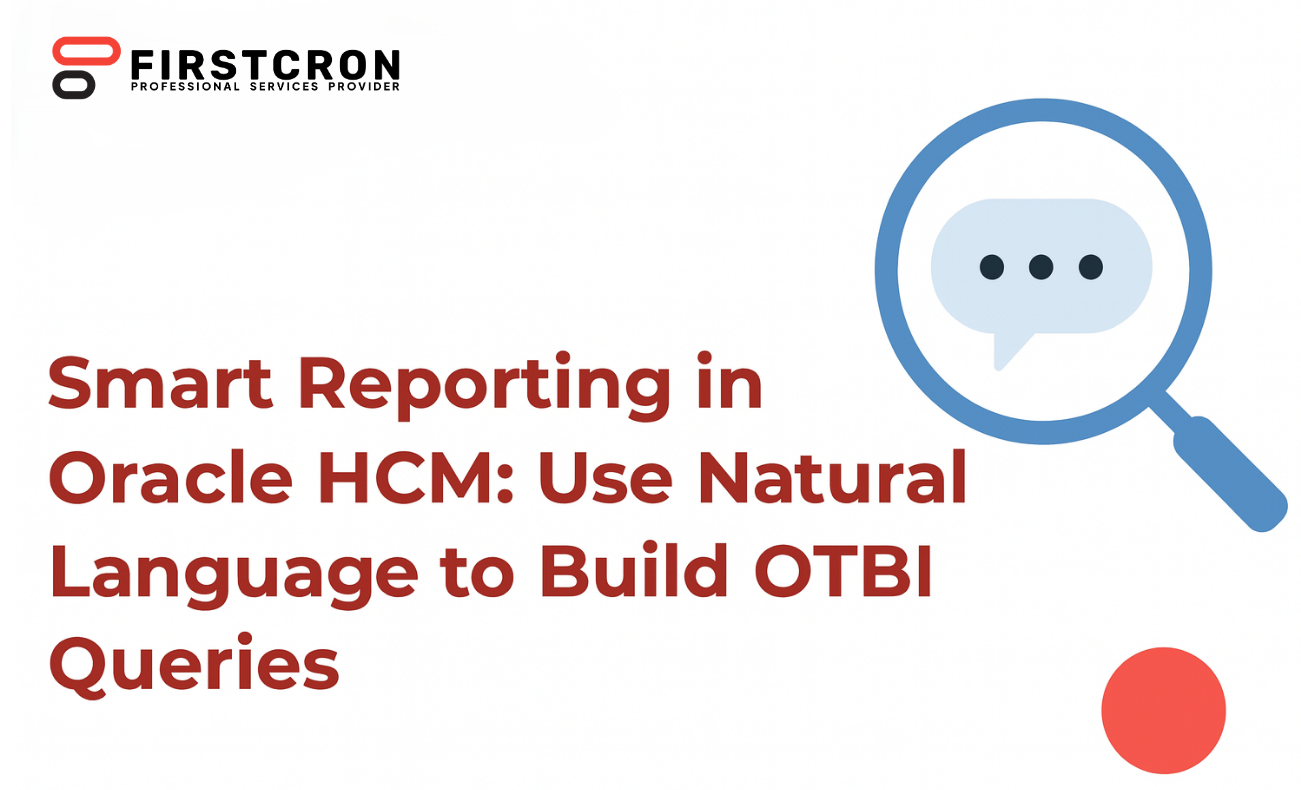
Oracle’s quarterly patch cycle, while essential for maintaining system stability, compliance, and innovation, often brings operational disruptions to local councils running Oracle Fusion Cloud applications. The recent 25D Patch introduces changes that affect HCM, Payroll, Finance, Reporting, and Integration—requiring a structured testing and validation approach to avoid costly errors or service interruptions.
With budget constraints and lean IT teams, many UK local authorities find it increasingly difficult to keep up with patch testing. In this article, we break down what Patch 25D means for public sector councils, the most common challenges it introduces, and strategies to mitigate them—ensuring continuity in service delivery.
In this blog we’ll cover
Key Changes In Oracle Fusion 25D Relevant To Councils
Below are the key changes in Oracle Fusion 25D relevant to councils
1. HCM & Payroll (UK Legislative Changes)
- Pensions Auto-Enrolment Enhancements: New logic around re-enrolment cycles and eligibility rules.
- Statutory Rate Updates: HMRC-related changes impacting SMP, SSP, and SPP configurations.
- Payroll Archive Processing Enhancements: Optimized for large-volume councils with thousands of employees.
Key Risk: Inaccurate pay runs or pension deductions can lead to compliance breaches and employee dissatisfaction.
2. Finance (GL, AP, AR, Budgeting)
- Invoice Scanning & Matching Improvements: New rules around supplier matching and duplicate checks.
- GL Journal Approvals: Enhanced workflow configurations, which may require re-mapping roles.
- Procure-to-Pay: Changes in punchout behavior and approval chaining.
Key Risk: Breakage in workflow approvals or budget overrun checks affecting day-to-day council operations.
3. OTBI & BIP Reporting
- Updated Subject Areas in OTBI: New joins in Payroll and Absence Management may affect existing dashboards.
- Deprecation Notices for Custom BI Templates: Certain deprecated fields may not appear in post-patch extracts.
Key Risk: Broken reports or data misrepresentation in statutory submissions (e.g., gender pay gap reporting).
4. Integrations (Inbound & Outbound Interfaces)
- SOAP API Security Updates: Changes to session authentication may break existing third-party integrations.
- HCM Extract Enhancements: Timing and sequence of delivery may impact downstream payroll vendors or HR analytics platforms.
Key Risk: Failed integrations could halt pay disbursements or disrupt third-party tools (e.g., pensions, timesheets).
Address These Challenges
Below are the points on how to address above challenges.
Lessons For Local Councils
Many local councils assume a reactive stance to Oracle patches—testing only when something breaks. But with the complexity of Fusion Cloud and limited in-house resources, this is no longer sustainable.
To avoid:
- Payroll delays
- Budget reporting issues
- Data integration failures
Councils need a repeatable, efficient testing framework that works every quarter.
Final Thoughts
Oracle Fusion 25D brings important improvements, but without proper planning and automated validation, even minor updates can disrupt mission-critical operations. Councils must take a proactive approach—leveraging automation, tight change control, and inter-departmental collaboration—to ensure patches strengthen rather than stall their digital transformation.
Need help validating Patch 25D?
FirstCron’s Patchguard offers end-to-end regression testing tailored to Oracle HCM, Payroll, Finance, and Integration workflows—purpose-built for UK public sector needs.
Contact us at: www.firstcron.com to schedule a council-specific demo.
Tags
Related Post
Navigating Oracle Fusion HCM & Payroll Patch 25C: Key Issues And Solutions For UK Local Councils
July 26th, 2025 10 min read
Learning And Talent Management With Cornerstone OnDemand
October 10th, 2025 17 min read
7 Proven Oracle Fusion Testing Principles To Guarantee Defect-Free Cloud Deployments
May 16th, 2025 15 min read
7 Reasons Why Companies Are Moving From Taleo To Oracle Recruiting Cloud
June 2nd, 2025 14 min read
Navigating Oracle Fusion HCM & Payroll Patch 25A: Key Considerations For UK Local Councils
July 27th, 2025 10 min read
UKG (Ultimate/Kronos) — USA And Global, Legacy-to-Modern Workforce Management
October 5th, 2025 23 min read
WEEKEND READS
Navigating Oracle Fusion HCM & Payroll Patch 25C: Key Issues And Solutions For UK Local Councils
July 26th, 2025 10 min read
7 Proven Oracle Fusion Testing Principles To Guarantee Defect-Free Cloud Deployments
May 16th, 2025 15 min read
7 Reasons Why Companies Are Moving From Taleo To Oracle Recruiting Cloud
June 2nd, 2025 14 min read
Navigating Oracle Fusion HCM & Payroll Patch 25A: Key Considerations For UK Local Councils
July 27th, 2025 10 min read
Driving Compliance And Security With Smart Testing In Oracle Fusion
June 5th, 2025 9 min read
How End-to-End Testing Of Oracle Fusion Enhances Operational Efficiency In Banking
May 23rd, 2025 11 min read
Data Migration Best Practices: From Taleo To Oracle Recruiting Cloud
May 28th, 2025 13 min read
Smart Onboarding Journeys With AI: Personalized Employee Integration Through Oracle HCM Core And Learning
September 13th, 2025 21 min read
Future Proofing Enterprise Testing: The Role Of AI Driven Automation In Oracle Fusion
June 26th, 2025 7 min read
Smart Reporting In Oracle HCM: Use Natural Language To Build OTBI Queries
August 17th, 2025 20 min read







